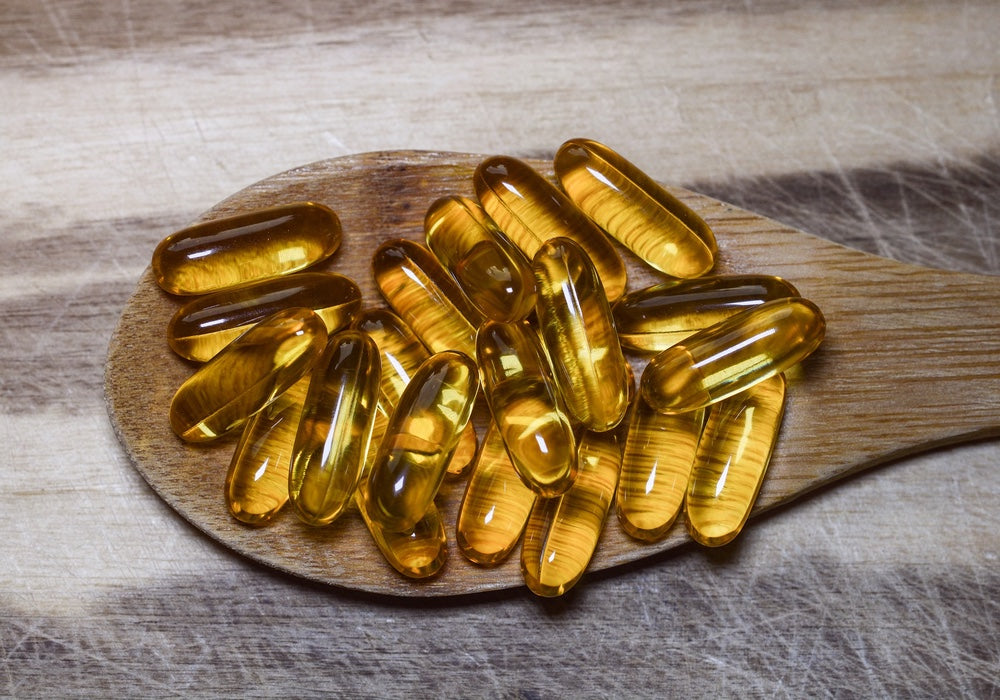Involuntary childlessness affects about every sixth couple in Austria. This can have many causes, such as stress, smoking, an increasingly older age of first-time mothers, lack of sleep or diet. A change to a vitamin-rich and wholesome diet can help women and men to fulfil their desire to have children.
The right diet can increase the chances of having a dream baby
A healthy, balanced diet for both parents can increase the likelihood of pregnancy. Nuts, fish, healthy oils and plenty of fresh fruit and vegetables should be on the plate regularly. Through new findings in epigenetics, we know that the parents' diet before, during and also after pregnancy has a great impact on possible diseases of the child.
In this article, we would like to briefly introduce the most important nutrients for those who wish to have a child. In further articles we will go into details.
Folic acid - the pregnancy vitamin
Folic acid is a vitamin from the B-complex, which promotes cell growth and is responsible for the development of the child's central nervous system. If there is a folic acid deficiency during pregnancy, the child's risk of being born with malformations increases.
Already at least four weeks before the planned pregnancy, women should make sure they have an adequate supply. Lentils, broccoli, egg yolks, wheat germ, dairy products, nuts, seeds and green leafy vegetables are ideal sources that can be included in the diet. However, the increased folic acid requirement during pregnancy can hardly be covered by the normal diet. Scientists recommend that women who want to have children take folic acid supplements (400 µg daily). You can find out more about folic acid here.
Vitamin B12 and B6 in pregnancy
A vitamin B12 and vitamin B6 deficiency can lead to deficiency symptoms such as anaemia and gastrointestinal complaints in the unborn child. In the worst case, a vitamin B12 deficiency can even increase the risk of miscarriage. Vitamin B6 contributes to the formation of the body's own protein and promotes blood formation. Vitamin B12 is essential for the formation of red blood cells and supports cell division.
These vitamins are abundant in animal and plant foods, such as meat, cereal products, bananas or yeast, and can be easily absorbed through the diet.
Biotin in pregnancy
Biotin, also called vitamin B7 or vitamin H, is also one of the vitamins of the B complex. The water-soluble vitamin is responsible for healthy skin, hair and nails in the body. During pregnancy, the supply of biotin is important because it is involved in many metabolic processes. Biotin can be taken in through the diet with milk, eggs, nuts or oatmeal.
Vitamin D during pregnancy
The body can produce vitamin D with the help of sunlight. People in northern latitudes often suffer from vitamin D deficiency. This can lead to pregnancy complications and undesirable developments in the child, such as lung diseases, deficiencies in bone structure or diabetes mellitus. Regular exposure to the sun and the outdoors stimulates the body's own vitamin D production. A vitamin D supplement can be taken as a supplement, but it should always be taken only after a diagnosis has been made by a doctor.
Omega-3 fatty acids and DHA in the desire to have children
Omega-3 fatty acids are considered essential fatty acids for those who wish to have children, but also during pregnancy. They promote the foetal development of the cells, the eyes and the brain. Good sources are wheat germ oil, linseed oil, rapeseed oil, fatty sea fish, dandelion, spinach, lettuce and broccoli.
DHA (docosahexaenoic acid) is especially important in the second half of pregnancy because it promotes the healthy development of the brain function of the unborn child. Pregnant women should consume at least 250 mg of DHA per day. DHA is mainly found in fatty fish such as salmon. If you want to take DHA specifically with food supplements, you can take capsules made from fish oil or the vegetarian alternative, algae capsules.
Iron - promotes fertility
Iron deficiency is widespread today. According to a study by the German Medical Association, almost half of women of childbearing age are affected by iron deficiency. This is mainly due to menstruation and the blood loss that accompanies it. Iron deficiency leads to fatigue and lack of concentration, as well as headaches and paleness. If a woman is pregnant, the need for iron increases rapidly. On average, pregnant women now need up to 30 mg per day instead of the usual 15 mg.
Iron-rich foods such as whole grain products, legumes, green vegetables, grains such as quinoa and amaranth, but also high-quality fish or meat (1-2 times a week is sufficient), should therefore land frequently on the plate if you want to have children and during pregnancy. To help the body absorb iron, vitamin C should also be taken at the same time. A glass of orange juice or diluted lemon juice is enough.
Unfulfilled desire to have children - when to see a doctor?
Even in healthy and young women, the probability of becoming pregnant within one cycle is only 30 percent. In addition, the fertile time window is only five to six days around ovulation. Ovulation sticks can help to determine ovulation and thus the fertile days. If pregnancy does not occur after one year, you should make an appointment with a gynaecologist. Women over 35 years of age are advised by gynaecologists to see a gynaecologist after six months.
Less is more - what makes sense if you want to have children.
The tip of our pharmacists at the Saint Charles Pharmacy: As soon as you are consciously planning to have a baby, you can take a folic acid preparation. That's all you need at first. A diet with lots of vegetables, fish, salads and olive oil makes sense in any case.
Do you suspect a deficiency - for example of vitamin D or iron? You should have this checked by your doctor before taking the appropriate preparations.







